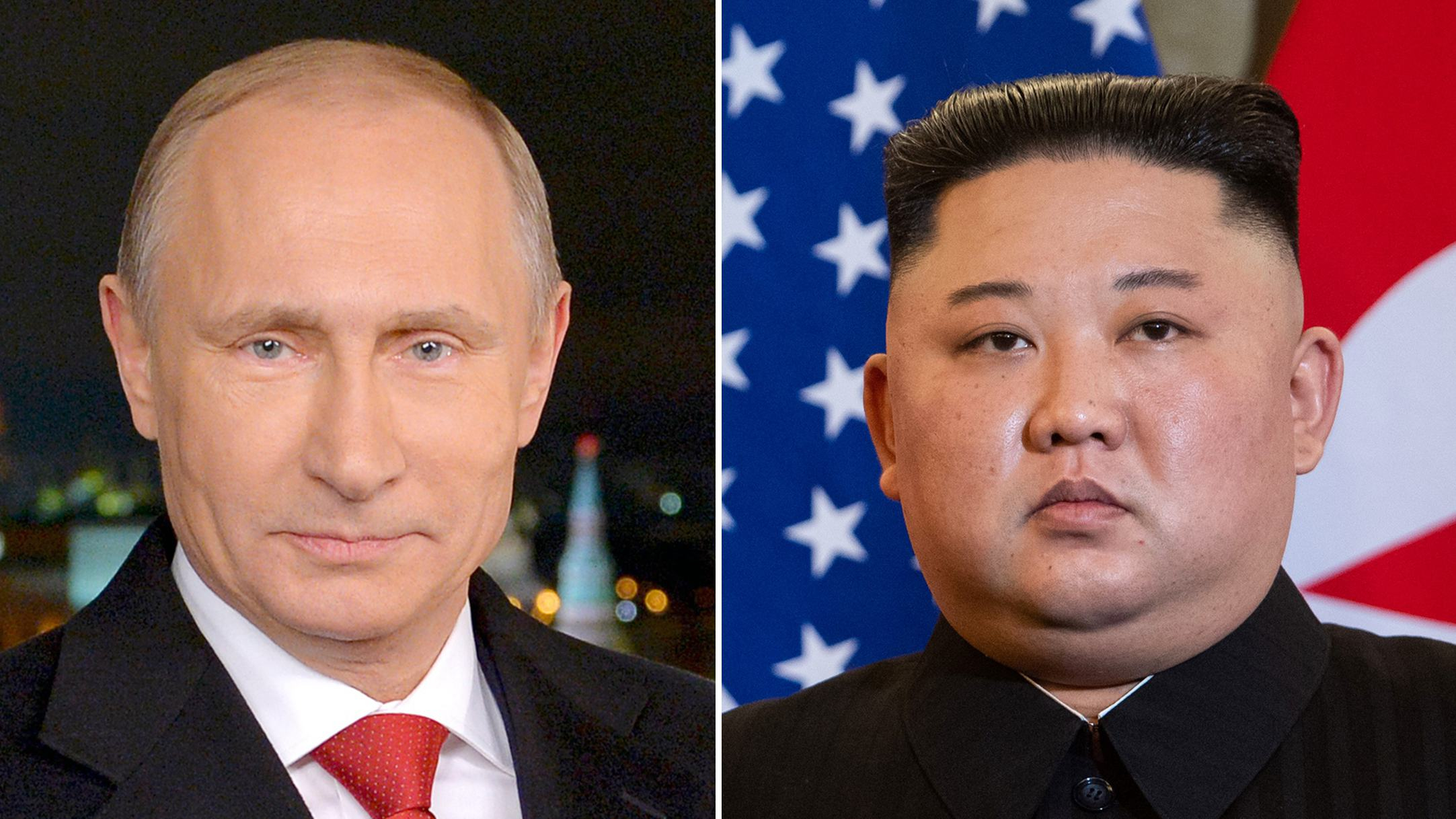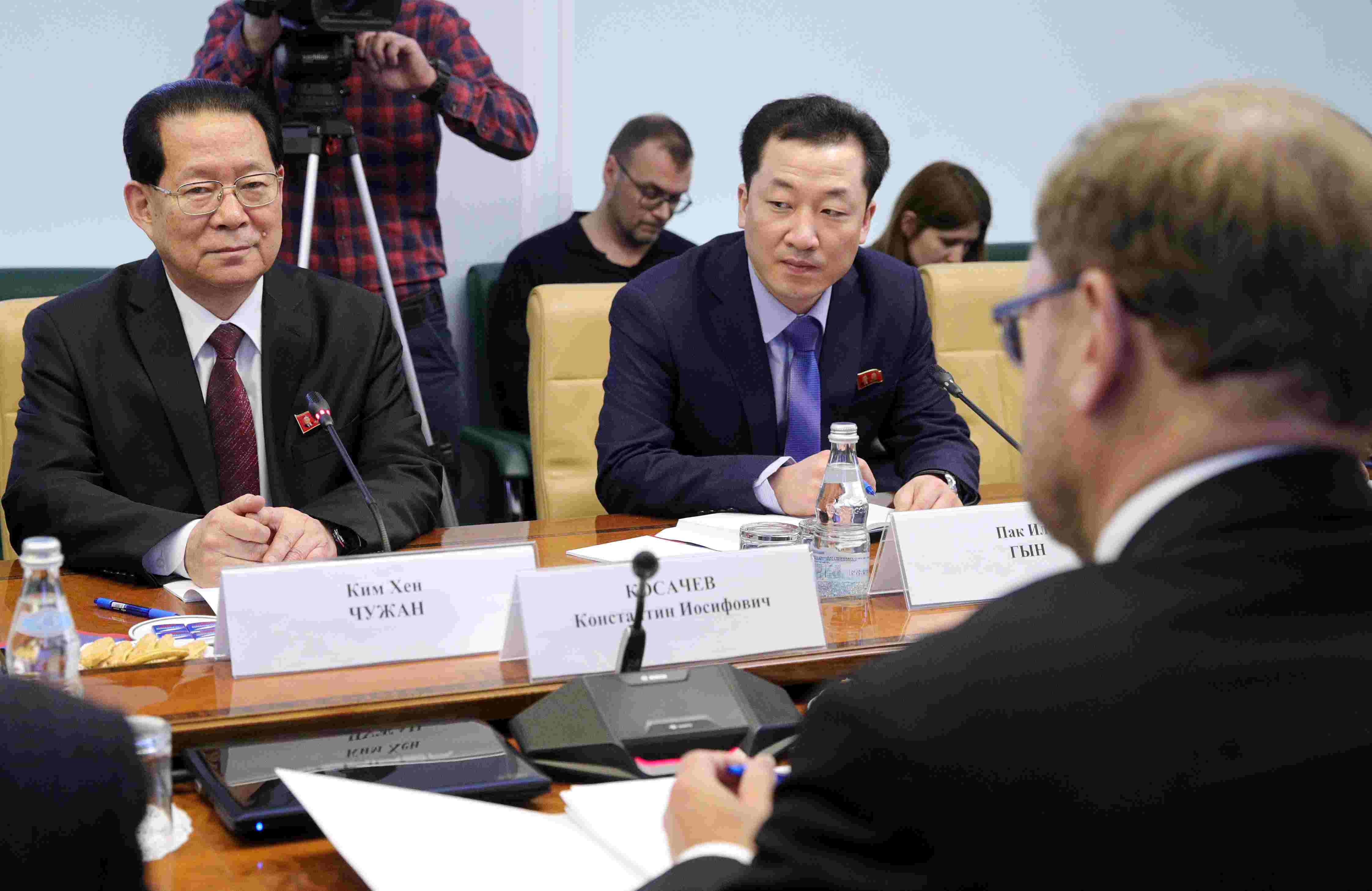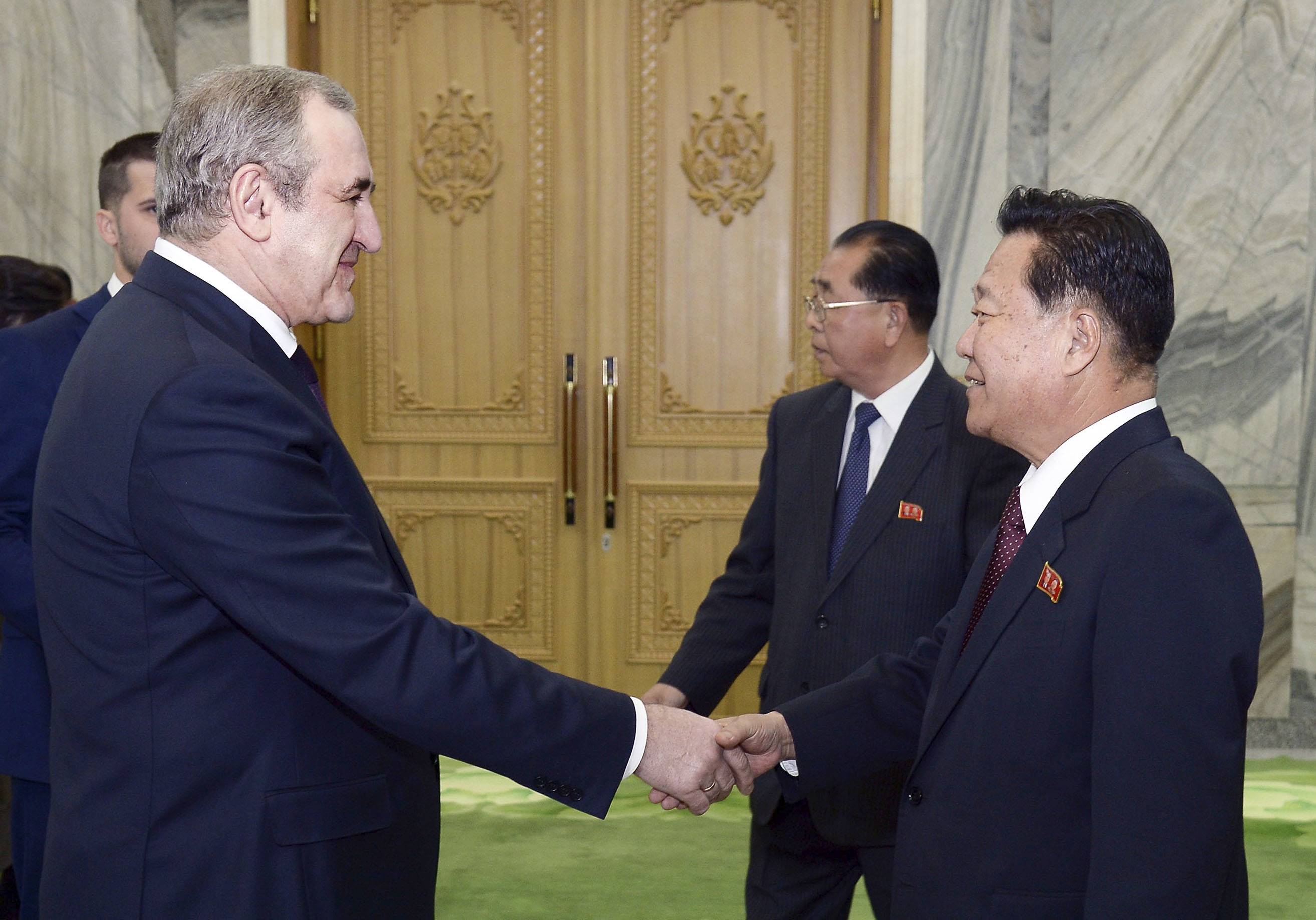
Opinion
09:17, 22-Apr-2019
Will Putin-Kim summit bring new impetus to the deadlocked nuclear negotiations?
Gleb A. Ivashentsov

Editor's note: Gleb A. Ivashentsov is Russian Ambassador Extraordinary and Plenipotentiary, Russia International Affairs Council (RIAC) member and vice-president. The article reflects the author's opinion, and not necessarily the views of CGTN.
It is expected that this week, a Russia-DPRK summit will be held in Vladivostok, a Russian city in the Far East. This meeting is long overdue against the background of Kim Jong Un's four meetings with Chinese President Xi Jinping, three with Republic of Korea President Moon Jae-in and two with U.S. President Donald Trump.
Moscow welcomed the inter-Korean and DPRK-U.S. summits, which significantly defused the situation on the Korean Peninsula. But in the meantime, it is also aware of the fact that, although promises have been made by two Koreas and the U.S., there has not been any solid progress on the denuclearization issue.

DPRK's Ambassador to Russia Kim Hyung Jun (L) and Chairman of the Foreign Affairs Committee Konstantin Kosachev (front) during a meeting at the Russian Federation Council in Moscow, February 11, 2019. /VCG Photo
DPRK's Ambassador to Russia Kim Hyung Jun (L) and Chairman of the Foreign Affairs Committee Konstantin Kosachev (front) during a meeting at the Russian Federation Council in Moscow, February 11, 2019. /VCG Photo
If the declared objectives of detente on the Korean Peninsula were to be achieved, Pyongyang will have to take a number of irreversible actions, for example, to provide access to confidential information for verification purposes, not to mention the physical dismantling of nuclear and missile infrastructure. At the same time, all steps on the part of the U.S. and ROK are easily reversible: Military exercises can be resumed, sanctions restored, diplomatic recognition canceled, etc.
We should not forget that at one time, former conservative ROK president Lee Myung-bak did not hesitate to cross out his liberal predecessors' "sunshine policy" towards the DPRK, and former U.S. president G. W. Bush brushed off Clinton's "appeasement of the DPRK" policy. Is there a guarantee that Moon, the peacemaker of Seoul, will not be replaced by a DPRK hater in a couple of years, and Trump – Kim's Singapore and Hanoi buddy – will not be impeached?
Pyongyang needs guarantees of compliance with possible agreements, certainly not the way Washington pulled out the Iran nuclear deal and the Antiballistic Missile (ABM) and Intermediate-range Nuclear Forces (INF) treaties, which clearly confirmed its unreliability as a partner to the treaties.
By his trip to Vladivostok, Kim Jong Un shows that Russia occupies an important place in DPRK foreign policy as the ROK, U.S., and China. Political interaction between Moscow and Pyongyang will inevitably become the leading topic of the Vladivostok summit.

DPRK's new head of the Presidium of the Supreme People's Assembly Choe Ryong Hae shakes hands with Russian deputy speaker Sergei Neberov, who led a joint delegation of political parties of Russia's State Duma, in Pyongyang, April 13, 2019. /VCG photo
DPRK's new head of the Presidium of the Supreme People's Assembly Choe Ryong Hae shakes hands with Russian deputy speaker Sergei Neberov, who led a joint delegation of political parties of Russia's State Duma, in Pyongyang, April 13, 2019. /VCG photo
Kim, on his part, will certainly inform Putin about his new strategy announced at the recent session of the Supreme People's Assembly of the DPRK, when he set a deadline for the end of the year: If the U.S. does not change tactics before that time, the DPRK can move to Plan B.
Undoubtedly, the issues of trade and economic cooperation will also be touched upon. The settlement of the DPRK's debt to Moscow in 2012 opened the way to its full-scale development. But today this cooperation is strictly limited by the sanctions imposed on the DPRK by the UN Security Council.
The sanctions also block the implementation of such trilateral projects among Russia, the DPRK and ROK, as the connection of the trans-Korean railway with the Russian trans-Siberian railway, the construction of the Russia-DPRK-ROK gas pipeline and the interconnection of the electric power systems of the three countries.
The failure of the U.S.-DPRK Hanoi summit and the apparent slippage of the inter-Korean dialogue in recent months urgently requires new impetus to the process of resolving security problems around the Korean Peninsula. The Vladivostok summit may give such an impetus. Especially due to the fact that from Vladivostok, the Russian president will proceed to Beijing, where he will meet with Chinese President Xi Jinping.
(If you want to contribute and have specific expertise, contact us at opinions@cgtn.com)

SITEMAP
Copyright © 2018 CGTN. Beijing ICP prepared NO.16065310-3
Copyright © 2018 CGTN. Beijing ICP prepared NO.16065310-3